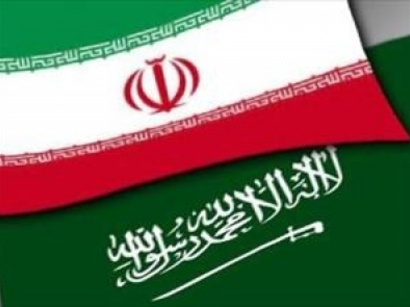Editorial
Iran and Saudi Arabia Need to Establish Cordial Ties

Throughout contemporary history, Iran and Saudi Arabia have had normal competitive and, at times, hostile relations. Even before the 1979 Islamic Revolution of Iran, the two countries had rocky relations despite the fact that both were close US allies. The rivalry between the two in OPEC and on policies related to maintenance of security in the Persian Gulf area was vivid in the early 70's.
After the Iranian revolution, the relations took a turn for the worse when Saudi Arabia sided with Saddam Hussein during the Iran-Iraq war. The differences between the two sides regarding the performance of the Hajj ritual and the killing of about 400 Iranian pilgrims by Saudi security forces in 1987 added to already fragile relations.
The end of the Iran-Iraq war and the subsequent Iraqi invasion of Kuwait encouraged both countries to bridge the gap and resolve their problems to the maximum extent possible although differences remained. The close relationship between Presidents Hashemi and Khatami of Iran and King Abdullah of Saudi Arabia helped ease the tension, preparing the ground to base the relations on a solid foundation.
The developments in Iraq and Lebanon in the mid 2000's and the unseating of Saudi friends in these countries were responsible for the Saudis’ bellicose attitude towards Iran. In other words, Saudi Arabia believed that Iran was behind the weakening of its positions in the region, hence doing everything in its power to neutralize Iran's role in the region.
Saudi military intervention in Bahrain in 2010, the crushing of people's uprising in that country by joint Saudi-Bahraini forces, and the subsequent decision of Saudi Arabia to make a union with Bahrain convinced Tehran that Saudi Arabia was determined to create a block against it. Moreover, the Saudi decision to provide military, political and financial support to Syrian opposition is interpreted in many quarters as an attempt to counter-balance the Iranian influence in the Middle East.
The recent execution of Iranian citizens in Saudi Arabia for their alleged involvement in drug trafficking and the Saudi decision to stop issuing visas for Iranian pilgrims have complicated the tense bilateral relations. Saudi determination to substitute Iranian oil shunned by European countries has also been considered by Iran as an unfriendly gesture.
Iran and Saudi Arabia enjoy many religious, historical and cultural affinities. The cooperation between the two countries in OPEC will be beneficial for both. And above all, their consultation and coordination on the security of the Persian Gulf region will benefit both as well as other countries in the region and beyond. It should be clear to both countries that neither side can deny the other side's legitimate interests in the region. They should bear in mind that enemies of the two countries try to sow discord among regional countries.
The recent statement by Iran’s Majlis Speaker Ali Larijani on the need to resolve the problems between Iran and Saudi Arabia is a welcome development. He said, "Certain disparities may exist between Iran and Saudi Arabia, but this should not make a difference. Thus, nothing should hinder amiable relations between the two countries". It is hoped that this gesture of goodwill will be reciprocated by Saudi officials, paving the way for normalization of relations.

